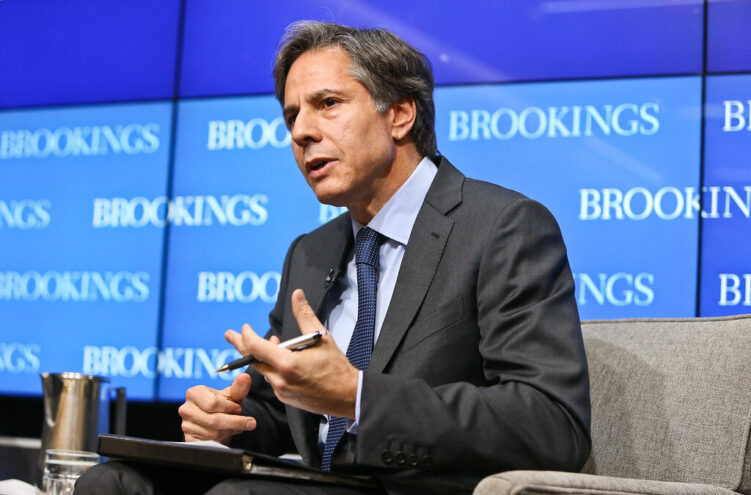
So. African Diplomat Lectures Blinken on European ‘Bullying’
South African International Relations Minister Naledi Pandor lectured American counterpart Antony Blinken on Wednesday, saying that Western nations are “bullying” the continent and denouncing democratic states seeking “to teach a country” how to be free.
Pandor and Blinken held a joint press conference on Monday as part of Blinken’s visit to South Africa on a tour that includes several African and Southeast Asian American allies. While Pandor complained that wealthier countries approached her, as the top representative of South Africa, with an attitude of “either you choose this or else,” Blinken lamented, “we all have our shortcomings,” promising not to approach the relationship as if the United States has greater leverage.
Pandor described her talks in private with Blinken as “extensive and excellent” and repeatedly emphasized that she did not feel that Blinken, personally, had been overbearing about America’s interests in the region. Nonetheless, Pandor insisted that Western nations had otherwise made South Africa uncomfortable with “bullying” language.
“We’ve all heard that narrative, that South Africa and the continent as a whole are the latest playing field in the competition between great powers. That is fundamentally not how we see it. It’s not how we’ll advance our engagement,” Blinken promised.
“I’m glad that Secretary Blinken has confirmed that America is not asking us to choose. I don’t recall any attempt by the United States to do that. But in terms of our interaction with some of our partners in Europe and elsewhere, there has been a sense of patronizing bullying toward ‘you choose this or else,’” Pandor explained.
“One thing I definitely dislike is being told ‘either you choose this or else,’” she continued. “When a minister speaks to me like that, which Secretary Blinken has never done but some have, I definitely will not be bullied in that way, nor would I expect any other African country worth its salt to agree to be treated.”
Pandor went on to complain that foreign nations sought to improve democratic institutions in South Africa.
“Your overall strategic intention might be to advocate for democracy and support its presence on the African continent. However, if your tactic is to approach African countries and say that, listen, you must be democratic either and use our model, it works, I think it’s bound to lead to some failure,” Pandor said. “[T]o come in and seek to teach a country that we know how democracy functions and we’ve come to tell you, you do it, it’ll work for you – I think it leads to defeat, so we need to think in different ways.”
Pandor emphasized that South Africa, and all African countries, would “relate to China … [in] whatever the particular form of relationships” they chose. “We can’t be made party to conflict between China and the United States of America, and I may say it does cause instability for all of us because it affects the global economic system,” she said.
Despite Pandor stating repeatedly that she did not object to Blinken’s form of diplomacy, Blinken criticized the United States for “inconsistencies” in its approach that it should improve.
“In terms of inconsistency, sure, I think it’s – we have these conversations, and we like to think that we’re engaged consistently on every issue. But we all have our shortcomings,” Blinken concluded, “and we can probably look back at a number of things that suggest that we’re applying principles in one place in one way but not the same way in another.”
Blinken has repeatedly engaged in self-criticism as a form of diplomacy while on the international stage representing his country.